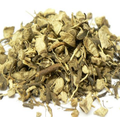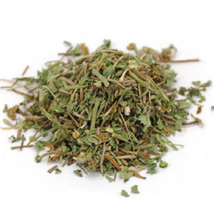 Loading... Please wait...
Loading... Please wait...- Home
- Bulk Herbs
- Herbs (G-H)
- Holy Basil Tulsi
- Home
- Bulk Herbs
- Herbs (T-V)
- Holy Basil Tulsi
- Home
- Herbal Teas
- Medicinal Remedy Teas
- Holy Basil Tulsi
- Home
- Herbal Teas
- Holy Basil Tulsi
- Home
- Herbs - Organically Grown & Wild Crafted USA
- G-I
- Holy Basil Tulsi
- Home
- Herbs - Organically Grown & Wild Crafted USA
- R S T
- Holy Basil Tulsi
Product Description
Holy Basil, Tulsi, Vana
Also Known As - Ocimum Tenuiflorum
Origin - Organically Grown, USA/Kauai, Hawaii
Overview - Holy basil is a plant. It is originally from India but now grows in Australia, West Africa, and some Middle Eastern countries. It is used in Ayurvedic medicine as an "adaptogen" to counter life's stresses. It is considered a sacred plant by the Hindus and is often planted around Hindu shrines. The Hindu name for holy basil, Tulsi, means "the incomparable one." Medicine is made from the leaves, stems, and seeds.
Medicinal Uses - Holy basil is commonly used by mouth to help with anxiety and stress. It is also used for diabetes and high cholesterol. But there is limited scientific research to support these and other uses.
Chemicals in holy basil are thought to decrease pain and swelling (inflammation). Other chemicals might lower blood sugar in people with diabetes.
There is interest in using holy basil seed oil for cancer. Early research suggests that the oil can slow progression and improve survival rate in animals with certain types of cancer. Researchers think this benefit may be explained by the oil's ability to act as an antioxidant.
Tulsi is considered an adaptogenic herb. Adaptogens are plants that help to adapt the body to stress and boost energy. Tulsi contains a number of beneficial compounds including:
- Eugenol: a terpene with pain-relieving properties, also found in clove oil
- Ursolic and rosmarinic acid: compounds with antioxidant, anti-inflammatory, and anti-aging properties
- Apigenin: a flavonoid that helps the body removes waste at the cellular level
- Lutein: an antioxidant carotenoid important for eye health
- Ocimumosides A and B: compounds that reduce stress and balances the neurotransmitters serotonin and dopamine
Preparations - Holy basil is traditionally taken as an herbal tea or mixed with ghee. Holy basil, or tulsi, is an important symbol in the Hindu religion and it is a significant herb in ayurvedic medicine.
Suggested daily serving: Pour 8-12 ounces of boiling water (212 degrees F) over 1 tsp. of tea. Steep 3-4 minutes.
Precautions - Not for use in pregnancy except under the supervision of a qualified healthcare practitioner. We recommend that you consult with a qualified healthcare practitioner before using herbal products, particularly if you are pregnant, nursing, or on any medications.
Pregnancy: Holy basil is POSSIBLY UNSAFE when taken during pregnancy or when trying to become pregnant. In animals, large doses of holy basil taken by mouth appear to reduce the chance that a fertilized egg with attach to the uterus. It also seems to decrease the number of full-term pregnancies. It's not known if this happens in humans. Stay on the safe side and avoid using.
Breast-feeding: Not enough is known about the use of holy basil during breast-feeding. Stay on the safe side and avoid use.
Diabetes: Holy basil might lower blood sugar levels. This might interfere with controlling blood sugar levels. People with type 2 diabetes may need to adjust dosing for insulin or antidiabetes drugs.
Hypothyroidism: People with hypothyroidism have low levels of the thyroid hormone called thyroxine. Holy basil might lower thyroxine levels. In theory, holy basil might worsen hypothyroidism.
Surgery: Holy basil might slow blood clotting, so there is a concern that it could increase the risk of bleeding during and after surgery. Stop using holy basil at least 2 weeks before a scheduled surgery.
-
Medications that slow blood clotting (Anticoagulant / Antiplatelet drugs) interacts with HOLY BASIL
Holy basil might slow blood clotting. Taking holy basil along with medications that also slow clotting might increase the chances of bruising and bleeding. But there isn't enough information to know if this is a big concern.
Some medications that slow blood clotting include include aspirin, clopidogrel (Plavix), dalteparin (Fragmin), enoxaparin (Lovenox), heparin, ticlopidine (Ticlid), warfarin (Coumadin), and others. -
Pentobarbital interacts with HOLY BASIL
Pentobarbital causes drowsiness. There is some concern that taking holy basil seed oil with pentobarbital might cause too much drowsiness. But there isn't enough information to know if this is a big concern.
Disclaimer -These products are dietary supplements and are not intended to diagnose, treat cure or prevent any disease. Reviews are not intended as a substitute for appropriate medical care or the advice of a physician or another medical professional. Actual results may vary among users. Mountain Maus Remedies LLC makes no warranty or representation, expressed or implied, as to the accuracy or validity of the information contributed by outside product review submissions, and assumes no responsibility or liability regarding the use of such information. The information and statements regarding the dietary supplements have not been evaluated by the Food and Drug Administration. If you have a medical condition or disease, please talk to your health care provider. If you are currently taking a prescription medication, you should work with your health care provider before discontinuing any drug or altering any drug regimen, including augmenting your regimen with dietary supplements. Do not attempt to self-diagnose any disease or ailment based on the reviews and do not use the information contained herein for diagnosing or treating a health problem or disease. Proper medical care is critical to good health. If you have a health concern or suspect you have an undiagnosed sign or symptom, please consult a physician or health care practitioner.
© Mountain Maus Remedies ® All Rights Reserved














